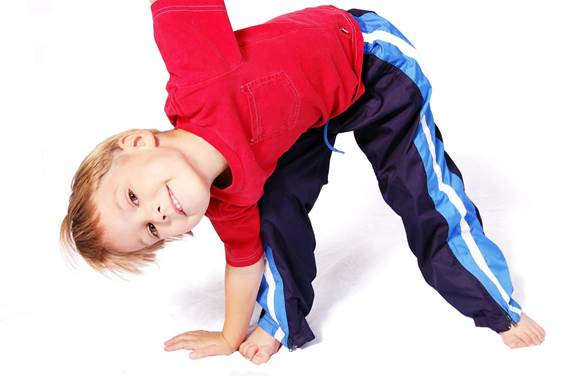The key to raising a happy, healthy child is to focus on both
their mind and body
All parents want their children to be healthy, so we serve
up nutritious meals, encourage them to have a run in the backyard and remind
them to brush their teeth at night. But for total wellbeing, a child also needs
a healthy mind. So how do we raise a well-rounded human being – someone who is
mentally strong, physically fit, resilient and compassionate to others? Here,
we look at some key components.
Teach them gratitude
Can teaching your child to appreciate what they have make
them happier and healthier in the long term? It seems so. Research from
California State University found that thankful teens were more satisfied with
their lives and less likely to abuse drugs and alcohol than less appreciative
teens.
The four-year study of adolescents found the most grateful
were 17 per cent happier than the least grateful. In that time, they also
experienced a 13 per cent drop in negative emotions and a 15 per cent drop in
depressive symptoms. “These findings suggest that gratitude may be strongly
linked with life skills such as cooperation, purpose, creativity and
persistence,” says lead researcher Giacomo Bono.

Can teaching your
child to appreciate what they have make them happier and healthier in the long
term?
What you can do
“Start by not giving kids everything they ask for,” says
child and adolescent psychologist Dr. Emma Little. “It might be that they need
to learn to wait, they need to earn what it is they want or sometimes you just
need to say no. This way, when they do get things, it’s special and a gift rather
than a right.”
Little has this trick to help your child recognize how
fortunate they are, without making them feel guilty: “I tell children, ‘Don’t
always compare yourself upwards to kids who have more. Look around and you’ll
always notice kids who don’t have what you have.’” This helps them see that not
every child has the same material wealth or opportunities as they do.
Bin the negative food messages
Having a positive relationship with food will not only help
your child maintain a healthy weight, it will safeguard their mental health,
too. Children and teens who binge eat are not only more likely to be overweight
or obese, they are twice as likely to become depressed and are more at risk of
taking marijuana and other drugs, reports the US journal Archives of Pediatrics
and Adolescent Medicine. Binge eating is characterized as overeating with a
loss of control.
“Parents need to tell their children that food is to be
enjoyed, not feared,” says psychologist Jennifer Garth. “When a child starts to
feel guilty or anxious around food, they’re more susceptible to becoming
chronic dieters or falling into bad eating habits.”

Having a positive
relationship with food will not only help your child maintain a healthy weight,
it will safeguard their mental health, too.
What you can do
“Teach them that food is energy, but to take pleasure in
delicious food,” says Garth. “Don’t label it ‘good’ or ‘bad’ or use it to
reward or punish your child. And don’t use food to comfort them or they will
reach for it every time they feel down. Instead, help your child to listen to
their body. Encourage them to eat slowly so there’s time for their hunger
signals to kick in. If they’re overeating, say, ‘Have you had enough?’ rather
than ‘You’ve had enough.’”
Eating together regularly will also give your teen’s mental
health a lift, reports a study in the Journal of Adolescent Health. “More
family dinners related to greater emotional wellbeing, more helpful behavior
towards others and higher life satisfaction,” says study co-author Frank Elgar.
Promote the benefits of exercise
Fit kids are more likely to become fi t adults, so ensuring
exercise is a part of their everyday routine is crucial. “Children aged three
to 18 need at least one hour of moderate to vigorous exercise a day,” says
dietitian Melanie McGrice of Melbourne’s Nutrition Plus.
Helping them get fi t is the gift that will keep on giving.
A US study found five-year-olds who exercised a little more than recommended
had less body fat at age eight and 11 than five-year-olds who didn’t, which
suggests being active has a protective effect on metabolism. Research shows
exercise helps children better cope with stress, while adolescents who take
part in team sports are at lower risk for mental health problems. A US study
also found that the fittest Year 6 to 8 students had the highest test scores
and better grades.

Promote the
benefits of exercise
What you can do
To instil in your child a love of exercise that endures,
start by helping them choose activities that suit their interests and skill
levels, says McGrice. They’ll be more likely to keep up a sport that they like,
even if it’s not one you would have chosen for them. Then model the positive
attitude to fitness you want them to emulate. A study by the UK’s University of
Essex found that children who perceive their parents as doing little or no
exercise have a 50 per cent greater risk of being unfit than those with more
active parents.